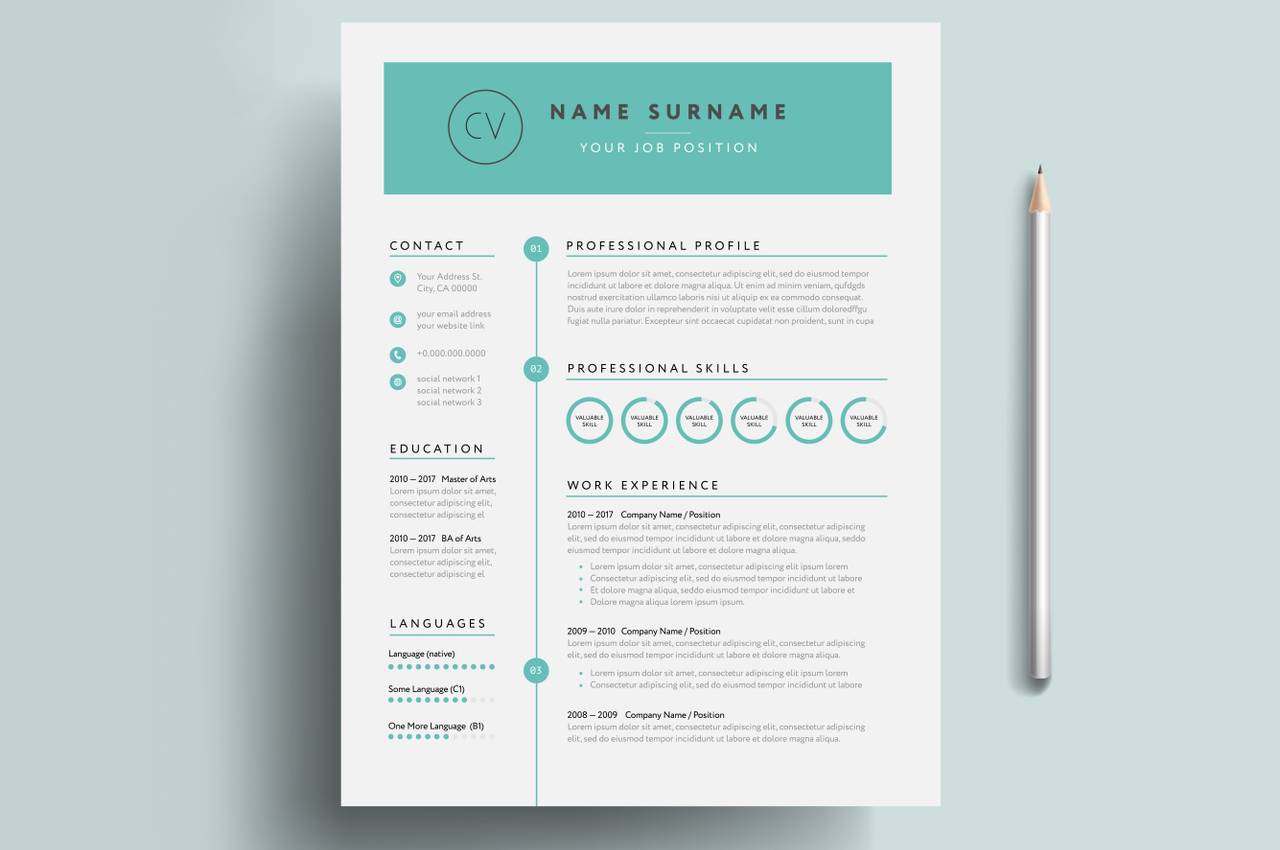Writing a professional CV requires some serious knowledge.
Undoubtedly, it can be one of the toughest challenges of job hunting (excluding the interview itself).
Your CV is usually the core key to impress your possible employer as most of them spend just a few seconds scanning each CV and understand whether they need you or no.
Today, GurusWay wants to present you the main secrets of writing a perfect CV. We’ll start from the very beginning so that everybody (from beginners to advanced professionals) were able to know how to write a perfect CV.
Here we go!
What is a CV? Why You May Need It?

As you may know, Your Curriculum Vitae (CV) is the document presenting you and all your skills to the employer. It can be considered as a personal marketing document used to sell yourself to prospective employers.
Usually, it should tell them about you, your professional history, your education, sometimes even about your hobbies, your skills (including personal and computer), and other achievements.
In other words, you need to write this document to explain why you’re the best person for the current job.
Identify Your Personal Profile
To successfully cross the finish line, you should pay more attention to this part as this is one of the most important aspects of your CV.
It’s a like short paragraph providing the main details to prospective employers an overview of who you are. To put it in a nutshell, you should try to address the following:
- Who are you?
- What can you offer the company?
- What are your career goals?
The other two of the most important sections are your education and work experience.
Don’t Forget Your Education & Qualifications

List your qualifications in the following order:
- The most recent and most relevant one.
- …
- …
- The oldest one
You can also give some information on the year you graduated, the title of your qualification, where you studied, the grade you were awarded the name of your University, college, business school or any other Higher institution.
Do not include qualifications with no relevance to the job. This means that you may have several CVs, depending on the job you’re applying for. You can even include the qualifications which you have not completed.
Don’t forget about the professional development courses and certifications. You can also list any licenses (with licenses) you have unless you have a separate section of your resume in the future where you include this information.
Work Experience & Employment History
Your employment history section gives you a chance to outline your last work experience and show the employer that they Do need you. List them in your experience section in reverse chronological order.
Start listing each position of employment from the dates of your job, mention the title and the employer. Make it easy to read, bullet points your key responsibilities, skills and career achievements.
If you have a long list of jobs because you have changed your workplaces numerous times, reduce the detail of old or irrelevant roles.
If you have worked for the same company for more than 10, 20 or even 30 years, try to write down your duties as wide as possible instead of writing several lines.
Related Article: 5 Secrets to Success in Business
The Error of Your Ways

Many HR managers and employers DO look for mistakes on the CVs. When you send them your CV and if they find a mistake, it makes you look really bad. If you want to make a good impression during your job interview, check your spelling and grammar several times to secure an interview from that point of view.
There are numerous Spellcheckers nowadays you can use. If you’re still not sure about the proficiency of your content, ask someone else to double-check what you’ve written.
Make Sure You Don’t Forget to Update It
Forgetting to update skills, education or work experience is also one of the most common mistakes people make while reaching out to their potential employers.
Make sure you keep the essential parts in your resume updated as you never know when you may need it.
There may be an opportunity for promotion within your current organization or you may meet the job of the whole of your life.
Be prepared to send a CV out quickly or you may miss out on the perfect opportunity. So the more frequently you update your CV, the less work you’ll need to do when you need to use it.
Why You Should Mention Your Hobbies & Interests in Your Resume?

While your CV tells the story of your qualifications and your career, the hobbies and interest section reveals a little more of your personality.
Although many people avoid writing any hobbies in their resumes there are some benefits of including hobbies there. Some experts even say that (of course, depending on the job) you should include some of the hobbies in your CV.
Demonstrating your relevant skills for the role helps your CV stand out from the crowd, differentiating you from them by addressing the matters, reaching to the final point, tackling a challenge, etc.
Next, adding voluntary work in your “suggestion paper” also shows your commitment to the society and community-focused projects. Also, it can be a topic of a good conversion during your interview.
Remember – make sure the hobbies mentioned in your CV show an interest or devotion to the job that you are applying to get.
For instance, if you’re applying for an IT-related job (for instance, Software Developer) do not mention your dancing skills, keep your list of hobbies as much relevant as it’s possible.
Susan Peterson is a Business professional having more than 10 years experience in Business, Marketing, Entrepreneurship, and other business-related spheres.
Currently, Susan is a content writer at the www.GurusWay.com and responsible for the Business-related articles.